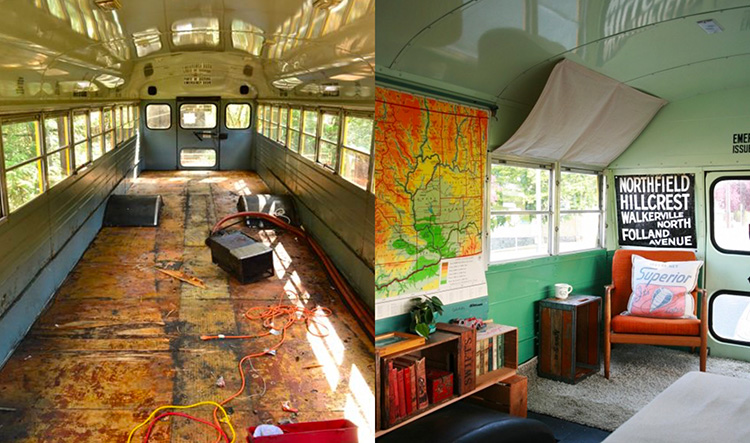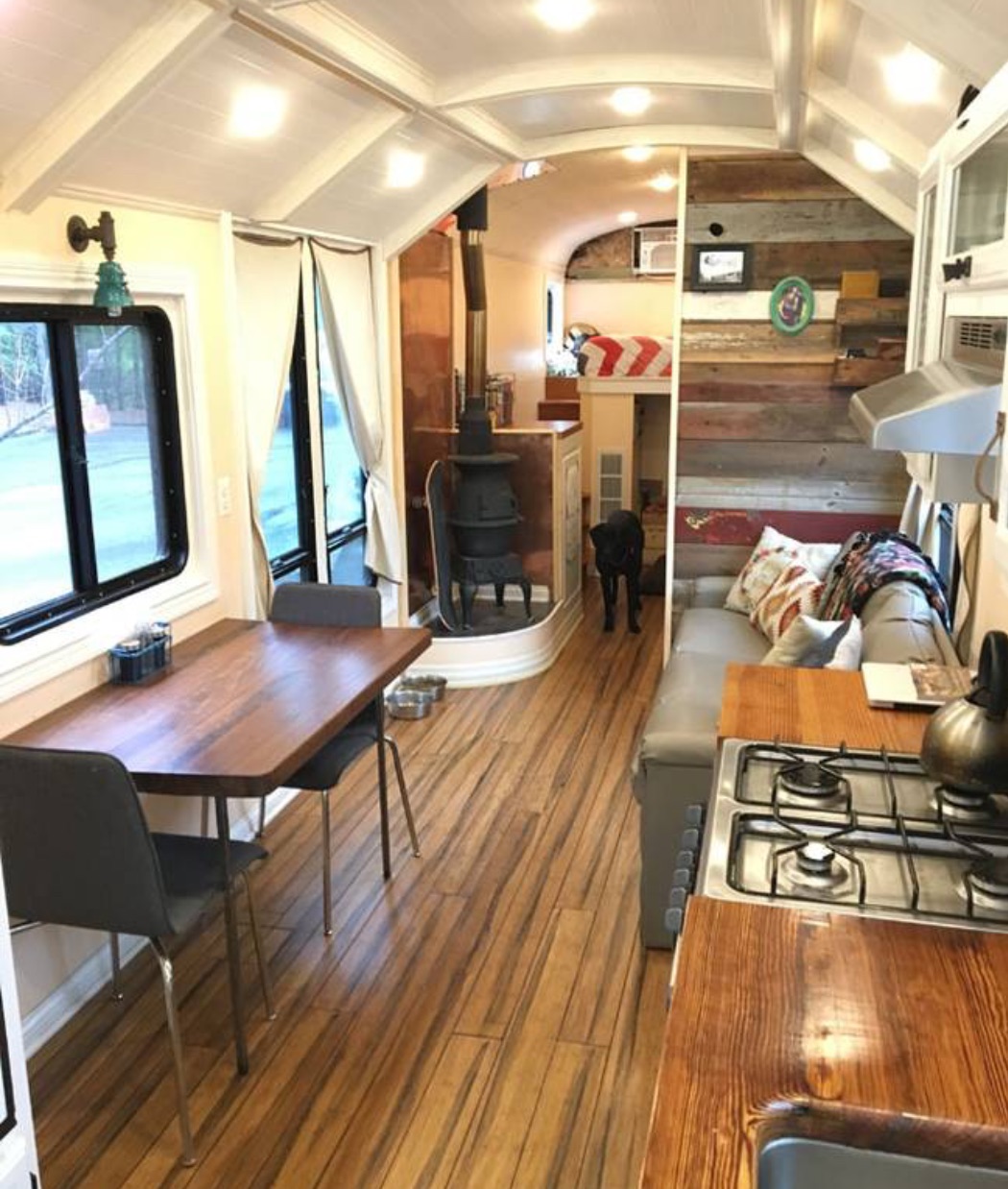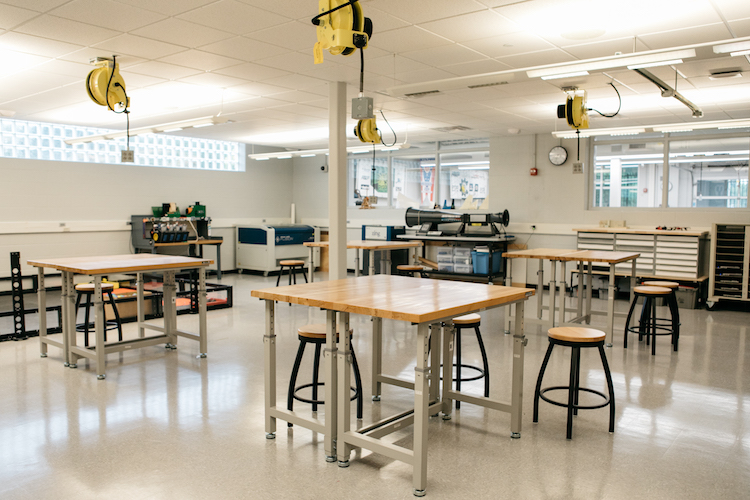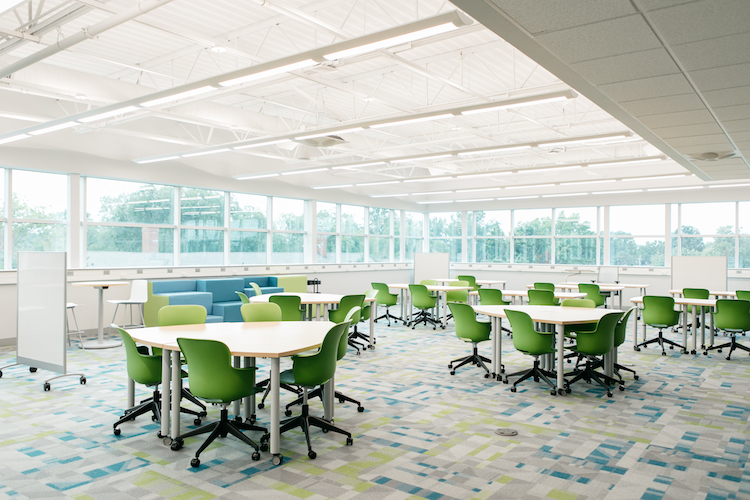Could school buses be housing for the homeless? St. Ed's High School students say yes
St. Edward High School's newly-unveiled Joseph & Helen Lowe Institute for Innovation is already driving students to give back to Cleveland with an ambitious project: transitional, affordable housing for the homeless in the form of upcycled school buses.
“Students were challenged to design their own social venture that would be implementable and have a significant social impact,” explains KC McKenna, the school's vice president of admission and strategic initiatives. “The one caveat I put to them was to not just have a coffee shop at the school and donate the proceeds. It had to be more advanced than that.”
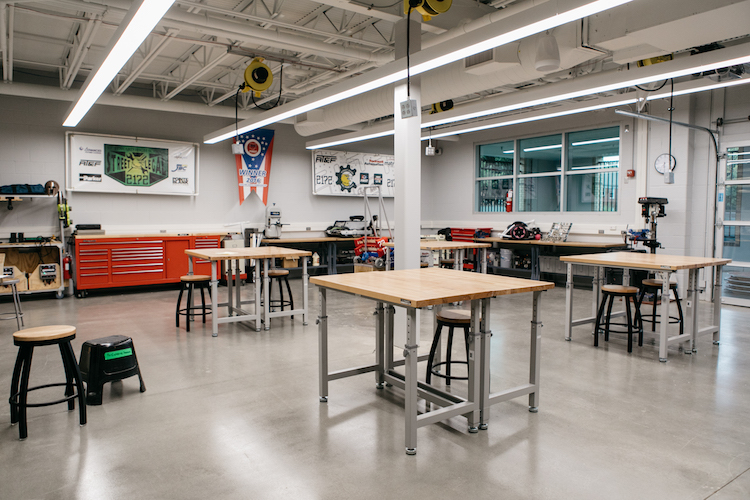 During a brainstorming session in the fall of 2017, students drew from their past experience in building affordable housing during an annual trip to Appalachia with the aim of bringing a similar idea back to Cleveland.
During a brainstorming session in the fall of 2017, students drew from their past experience in building affordable housing during an annual trip to Appalachia with the aim of bringing a similar idea back to Cleveland.
“It was a breakthrough from a student who said, 'Why aren’t we just doing that locally back here on campus?'” McKenna says. “We have this big built-in workforce of students with a desire to serve.”
The focus then was to create spaces to allow those in need to have some stability, which led to an in-depth look at retired school buses. Once the idea was formulated, the students embraced it and began determining how feasible it would be to flip the structures into living units for Cleveland’s impoverished. (Thirty-two percent of Clevelanders currently live in poverty.)
“It’s not so much a homelessness issue as it is a life disruption issue,” McKenna explains. “One of the things we learned along the way is that the path to homelessness is a big, unexpected life event such as an eviction or a major expense…it snowballs.”
Their vision is called the "Rutu Home," which will cost 74 percent less than the average tiny house. To kickstart the project, the school is currently seeking funds via grants and private investors to build out the first housing prototype—which students aim to produce within a couple months once funding is secured.
“We’re estimating the prototype will cost about $15,000,” says McKenna. “Once we’re able to get investors and the prototype built, we’ll see a lot of traction in terms of funding and momentum in getting this to happen.”
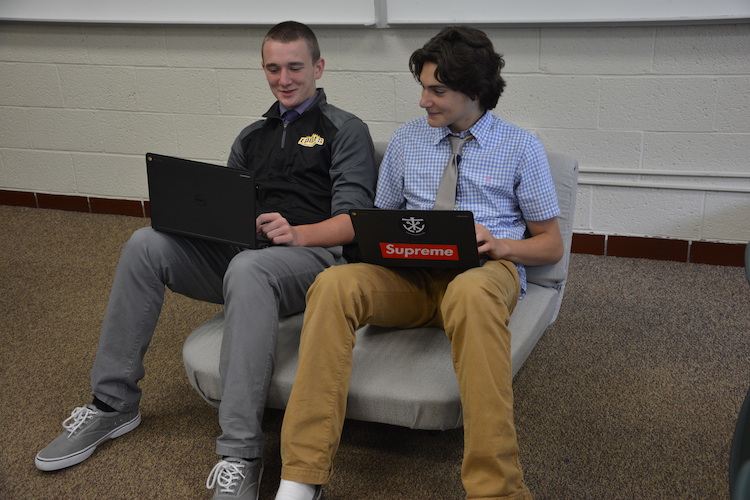 The goal is to have a functional prototype in place by May 2019. In the meantime, students have been finding ways to reuse every part of the bus. Prototypes for bus seat loungers currently are being constructed, with positive feedback.
The goal is to have a functional prototype in place by May 2019. In the meantime, students have been finding ways to reuse every part of the bus. Prototypes for bus seat loungers currently are being constructed, with positive feedback.
“We can convert a bus seat into a pretty nice and comfortable lounger and sell them for $150 to $200 retail, which would also fund the project overall,” McKenna says.
Once the prototype is completed, the school plans to partner with local nonprofits to bring housing to Cleveland families in need.

